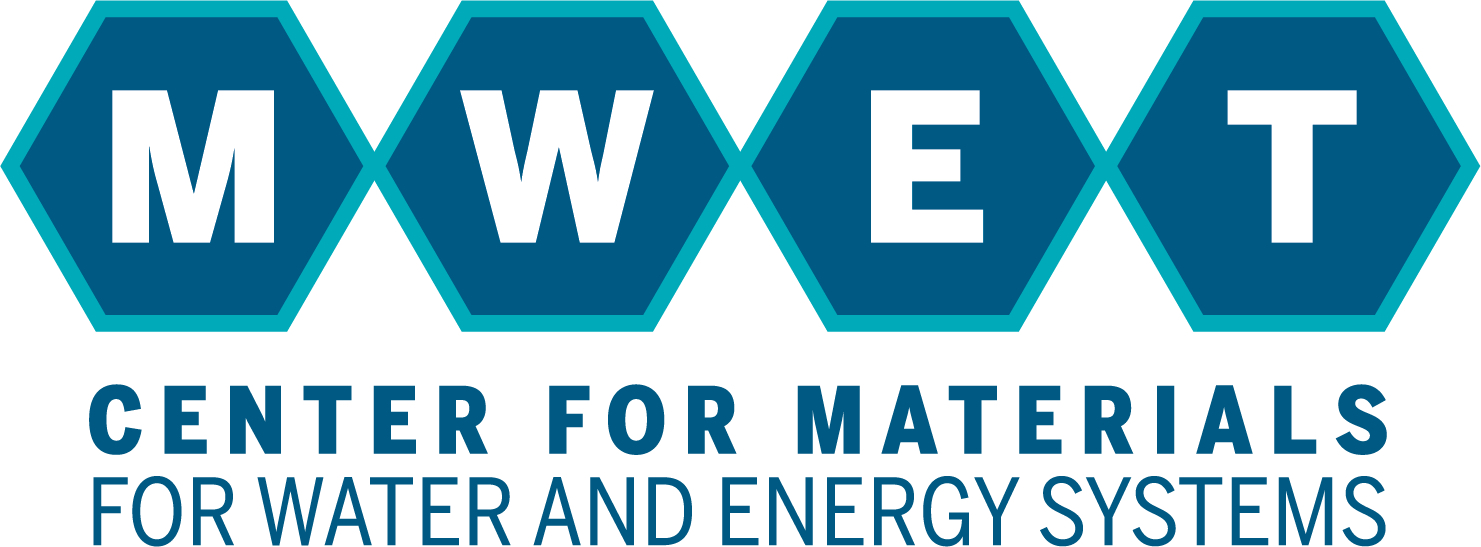
Location: EER 3.640/3.642 or Zoom: 828 685 7838
Sponsor: Department of Energy (DOE) Energy Frontier Research Center (EFRC) Materials for Water and Energy Systems (M-WET)
Title: "Engineering adsorptive membranes for the targeted capture of contaminants and resources from water"
Abstract:
Membranes represent a versatile separations platform that can help support the growing global demand for sustainable supplies of food, water, medicine, and energy. As the performance of nanostructured membranes push the limits of size-selective separations, there is increasing interest in multifunctional membranes with deliberately engineered pore wall chemistries. This talk will describe the development of adsorptive membranes from poly(phenolphthalein)-based (PPH-based) polymers. These polymers, which are designed to possess a high density of reactive binding sites, are transformed into membranes using a surface-segregation and vapor-induced phase separation (SVIPS) method. This process involves dissolving the polymer to form a homogenous casting solution, drawing that solution into a thin film, and exposing it to a humid environment to initiates phase separation.
By elucidating the relationships between PPH chemistry and SVIPS conditions, we show that membranes with bicontinuous pore structures and hydraulic permeabilities of ~104 L m-2 h-1 bar-1 can be fabricated. During membrane formation, the hydrophobic backbone of the polymer forms the solid matrix, while the hydrophilic reactive moieties segregate to the pore walls, making them accessible to post-synthetic modification. We demonstrate that various reaction mechanisms can be used to attach high- affinity molecular recognition elements for efficient solute capture. Furthermore, insights into the SVIPS process enable the three-dimensional printing of filters with hierarchical organization across multiple length scales. Through these examples, we illustrate how the PPH-based polymer platform, combined with SVIPS processing, offers new opportunities for re-envisioning the design and scalable manufacture of separation devices tailored for diverse application domains.
Bio:
William A. Phillip received his B.S. in Chemical Engineering from the University of Notre Dame in 2004; and completed his Ph.D. in Chemical Engineering under the guidance of Dr. Ed Cussler at the University of Minnesota in 2009.
Following his Ph.D., Dr. Phillip completed a postdoctoral appointment with Dr. Menachem Elimelech at Yale University. He is currently the Rooney Family Collegiate Professor of Engineering in the Department of Chemical and Biomolecular Engineering at the University of Notre Dame, where he heads the Water purification and Advanced Transport Engineering Research (WATER) laboratory.
The WATER lab examines how the structure and chemistry of polymeric membranes affect the transport of solutes and solvents across them. By understanding the connection between functionality and property, Professor Phillip and his group are able to design and fabricate next-generation membranes that provide more precise control over the transport of chemical species. These material advantages are then leveraged to design systems capable of enhancing chemical separations at the water-energy nexus. The WATER lab has been recognized with the 3M Non-Tenured Faculty Award, the Army Research Office Young Investigator Program, the North American Membrane Society Young Membrane Scientist Award, the Rev. Edmund P. Joyce, C.S.C., Award for Excellence in Undergraduate Teaching, the Duncan and Suzanne Mellichamp Lectureship at Purdue University, and the FRI/John G. Kunesh Award.

